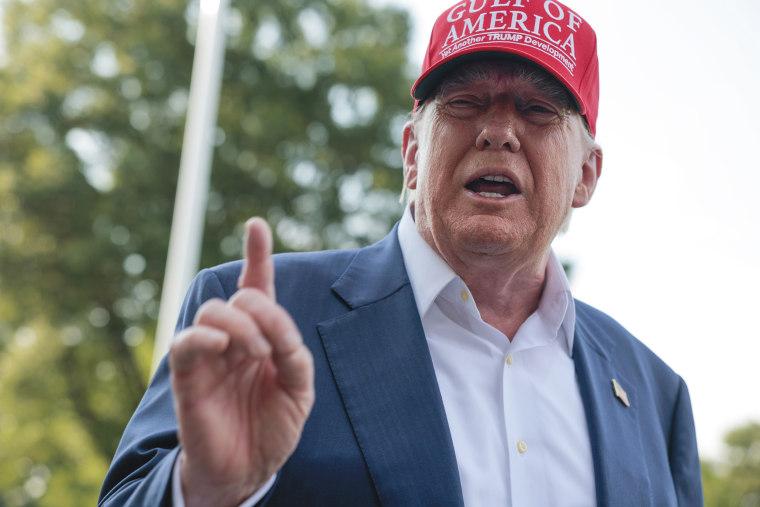Paramount’s Settlement with Trump: A Turning Point in Media Accountability and Editorial Practices
Paramount’s Resolution with Trump: Redefining Media Standards and Responsibilities
The recent settlement between Paramount and former President Donald Trump transcends a mere legal agreement; it signals a transformative moment in the realm of media obligation and editorial judgment. Paramount’s willingness to revisit aspects of the contentious “60 Minutes” broadcast reflects mounting pressures from influential public figures to scrutinize and challenge mainstream media narratives. This progress is likely to compel news organizations to enhance their fact-checking rigor and source validation methods, striving to strike a careful balance between assertive journalism and the risk of defamation claims.
Experts in media studies predict that this settlement could serve as a benchmark,influencing journalistic standards across the country. Historically, the principle of journalistic autonomy has been staunchly defended, yet this case exposes vulnerabilities where legal considerations and corporate risk aversion increasingly shape editorial choices. The table below highlights potential shifts media companies might adopt in response:
| Dimension | Anticipated Change |
|---|---|
| Editorial Review | More comprehensive legal vetting prior to airing sensitive reports |
| Verification Processes | Implementation of stricter source authentication to curb misinformation |
| Corporate Transparency | Greater openness about editorial modifications following legal disputes |
| Independence of Journalism | Heightened tension between editorial teams and executive management |
| Audience Confidence | Potential decline if perceived as succumbing to external pressures |
Examining the Legal and Ethical Dimensions of the Paramount-Trump Settlement
The Paramount-Trump settlement over the “60 Minutes” episode raises profound legal and ethical dilemmas concerning editorial freedom and corporate influence.Paramount’s choice to resolve the dispute outside of court, rather than defending its journalistic integrity, has ignited discussions about the fine line between managing legal risks and inadvertently censoring investigative reporting. Critics warn that such settlements may discourage media outlets from pursuing in-depth investigations, especially in politically sensitive contexts.
Moreover, the intersection of political power and media ownership complicates the ethical landscape. Key concerns include:
- Press Freedom: The threat of litigation from prominent figures could weaken the media’s role as a societal watchdog.
- Corporate vs. Editorial Priorities: Navigating the tension between profitability and ethical journalism remains a persistent challenge.
- Transparency in Journalism: Audience trust hinges on candid reporting, which may be compromised when settlements lack full disclosure.
| Legal Consideration | Ethical Issue |
|---|---|
| Risk of Defamation Claims | Potential erosion of journalistic credibility |
| Confidentiality of Settlement Terms | Challenges to transparency and accountability |
| Corporate Legal Strategies | Balancing editorial independence with business interests |
Consequences for Investigative Journalism and Editorial Autonomy
The Paramount settlement with Donald Trump has sent ripples through the investigative journalism community, prompting newsrooms to reconsider their approach to politically sensitive reporting. Editorial teams now face increased pressure to self-censor, raising alarms about the potential weakening of journalistic independence. This high-profile case serves as a stark reminder of the challenges media outlets encounter when confronting influential political figures, potentially dampening fearless inquiry and watchdog journalism.
Emerging newsroom trends include:
- Heightened Risk Aversion: Editors are more cautious, weighing legal consequences before publishing contentious stories.
- Early Legal Involvement: Legal advisors are integrated earlier in the editorial workflow to preempt defamation risks.
- Source Protection Concerns: Journalists exercise greater caution in handling sensitive sources due to fears of legal and corporate repercussions.
| Factor | Pre-Settlement | Post-Settlement |
|---|---|---|
| Investigative Courage | High | Moderate |
| Editorial Independence | Strong | More Restricted |
| Legal Oversight | Advisory | Intensive |
Effective Approaches for Media Outlets to Resist Political Pressure and Preserve Credibility
In an era marked by heightened political scrutiny, media organizations must safeguard their integrity while managing external influences. Establishing clear and transparent editorial guidelines is crucial to delineate how stories are evaluated and presented, fostering audience trust and shielding outlets from allegations of bias. Additionally, promoting diversity within newsrooms ensures a multiplicity of viewpoints, countering the dominance of any single political narrative.
Robust fact-checking systems empower newsrooms to withstand politically motivated challenges. Institutional mechanisms such as self-reliant review committees and legal protections can bolster journalists’ resolve to maintain editorial independence. The following table summarizes key strategies that media entities can adopt to uphold credibility without compromising journalistic standards:
| Strategy | Advantage | Implementation Method |
|---|---|---|
| Transparent Editorial Policies | Enhances public trust | Publicly share editorial standards and decision-making processes |
| Diverse Newsroom Perspectives | Ensures balanced and comprehensive coverage | Recruit journalists from varied backgrounds and viewpoints |
| Independent Oversight Panels | Facilitates impartial conflict resolution | Establish third-party review boards |
| Legal and Ethical Protections | Safeguards journalistic freedom and content integrity | Implement contracts and policies that protect editorial independence |
| Advanced Fact-Verification Tools | Mitigates misinformation risks | Invest in cutting-edge verification technologies and training |
Reflecting on the Paramount-Trump Settlement: Implications for the Future of Journalism
As Paramount’s settlement with former President Trump over the “60 Minutes” controversy settles into the public consciousness, its reverberations extend deeply into both media and political spheres. This uncommon concession highlights the mounting challenges news organizations face when reporting on powerful political figures. The ongoing challenge for media outlets will be to maintain a delicate equilibrium between fearless journalism and legal prudence.Paramount’s decision not only underscores the difficulties inherent in holding authority accountable but also prompts urgent reflection on the sustainability of editorial independence amid escalating political sensitivities.
